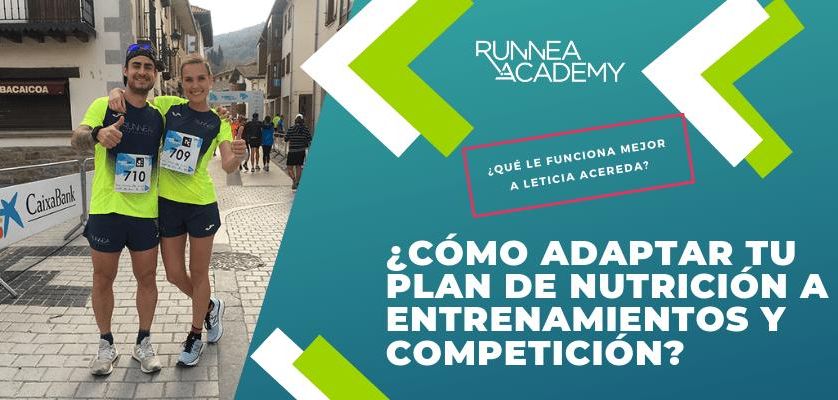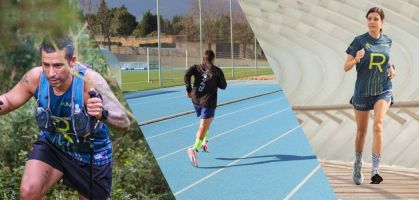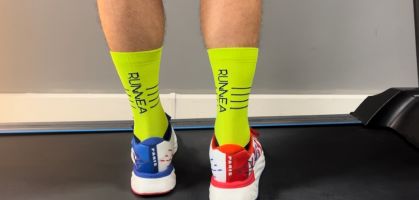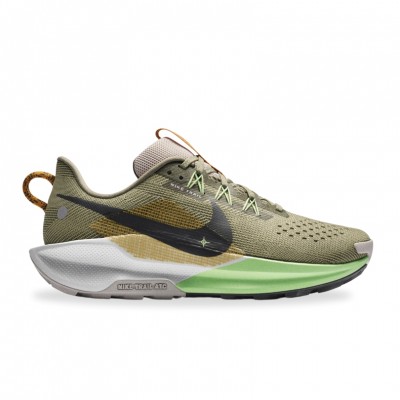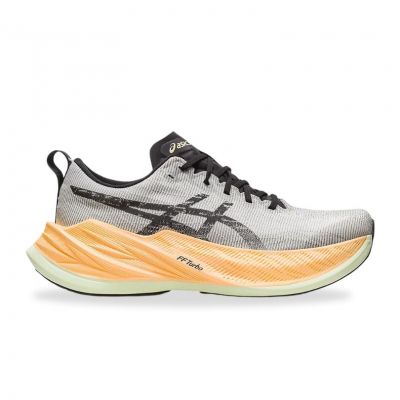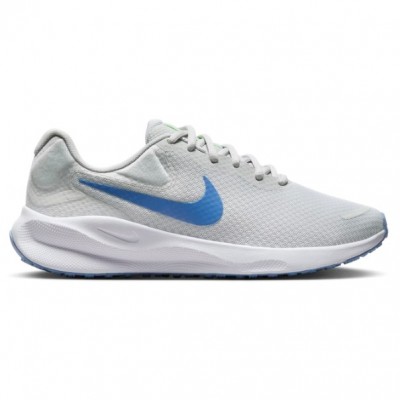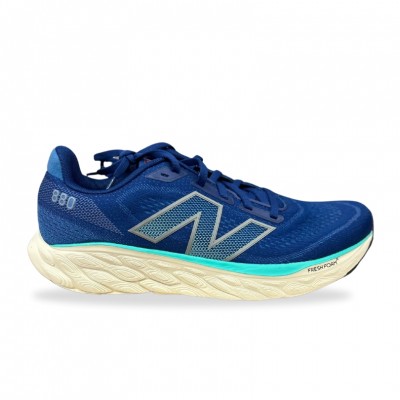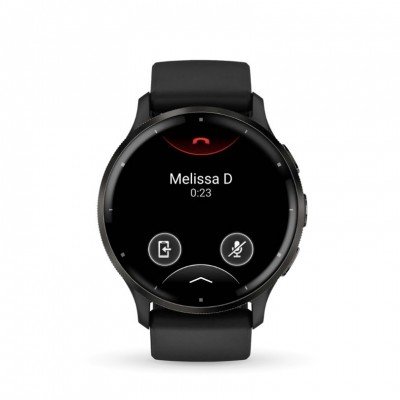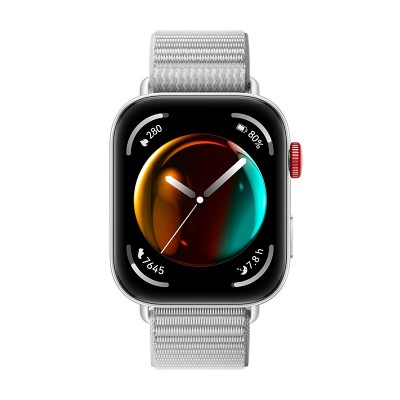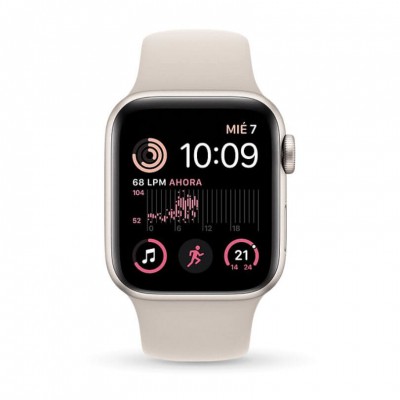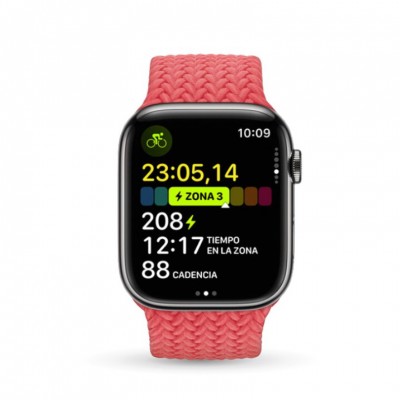Based on the effective premise that "We are what we eat", in this post we focus on the importance of following a nutrition plan for training and/or competing. Or what is the same in that vital section of the invisible training, which is not seen, but has its positive effects not only to improve our performance as runners / as popular, but also for the benefit of our health. It is a matter of habits, and of avoiding obsession with the subject in question.
A clear example of this perfect pairing between training plan and nutritional plan can be found in our Runnea Women Team member and Runnea tester, Leticia Acereda Pascual. The athlete from Tudela has been the last winner of the half marathon of the EDP Vitoria Gasteiz Maratón Martín Fiz 2019 (1.20:09). Her formidable progression as a popular runner, who is overcoming goals and beating personal bests, fits us like a glove to valor the importance of taking care of what you eat and how you eat when preparing for a competition, and also to train better, at least with greater confidence.
Although the author of the blog Entre Cordones, Leticia Acereda, has the "self-taught" mode on, from Runnea we emphasize that one of the basic recommendations is to get in the hands of a professional in the field. That is, a nutritionist and / or dietitian, who knows how to fit the pieces of the puzzle, combining training and competition with a nutrition focused on being more efficient athletes. The results will not take long to arrive.

Apart from the importance of training to be more efficient, the importance of nutrition is something vital for every runner. How do you manage your nutrition in your daily life? How important is it?
For me, nutrition plays an important role in my daily life. At home we have a good eating habit. I am very aware that the quality of food is related to its effects. That is, if you eat badly, you feel bad.
The body needs nourishment, however, eating is not always synonymous with nourishment.
If our body does not find these nutrients in food, our organs will be unprotected. Over the past few years, I have learned to distinguish the foods that contain the most calories high in nutrients to help my body achieve proper nutrition.
Do you follow any kind of diet or nutritional plan? Do you have the nutritional advice of a professional or do you do it in a self-taught way?
I have never liked to follow a strict diet. I like to eat, and I enjoy eating every day. It doesn't matter if it's Monday, Saturday or Sunday, I eat in a healthy and balanced way. I believe that acquiring a good nutritional habit is very beneficial for anyone. I believe in conscious eating, that is, in the importance of the moment in which we start eating. We must learn to recognize whether we eat because we are really hungry or because it is time. We must savor the food, chew it well. And also stop eating when we feel that we are satiated.
As for counseling, although I have had conversations with nutrition experts, I could say that I do it in a self-taught way. I recognize that this is an area that I enjoy. I read a lot about it and try to learn and innovate.
What foods should a runner eat for running?
What are the foods that can't be missing in your daily menu? Which are on your list of forbidden foods that you don't eat?
My daily menu never lacks fresh fruits and vegetables. I like to take food as close as possible to its natural state.
I don't have any forbidden foods as such, but I try to avoid foods with high amounts of saturated fats, added sugars, colorings and preservatives. For example, I rarely (if ever) eat industrialized pastries. Nor precooked foods. Nor do we resort toFast food".

Although the popular runner, especially focused on goals, must take care of what he eats and how he eats it, surely, from time to time, you indulge in a treat.
Honestly, I eat whatever I feel like. And I'm lucky that I like everything. Maybe pizza could be a confessable vice. Even here I could tell you that I prefer homemade pizza, that is, the one we prepare ourselves. We put everything on it and they are delicious. And, of course, they are much healthier.
Chocolate? I love it! In general, a little sweet after eating.... Although I'll save that for the weekend.
Do you take any kind of sports supplementation to complete your nutritional plan?
Yes, after training I usually take an energy drink, which also acts as an energy recuperator, defatigante and antioxidant.
Every day I am taking a capsule of TetraSOD. This is an all-natural ingredient obtained from the algae Tetraselmis Chuii. In essence, it is nothing more than this freeze-dried seaweed. The final product is a powder that is encapsulated along with other ingredients for different applications that can be used, apart from performance and recovery, for a myriad of therapeutic purposes. It should be noted that it is not a drug, but the SOD (Super Oxide Dismutase) is the most powerful antioxidant enzyme in the body TetraSOD providing a very high dose per intake so it is used at nutraceutical level in cellular anti-aging products.
I also take chocolate flavored recovery powder. I usually add it to my milk. It is a combination of carbohydrates and protein. I use it as an extra food to enhance my recovery.

What should I eat before and after competing/training?
Do you have a special nutrition plan for preparing for a race and entering a competition? How is your food during the previous week?
As I told you I don't have any special diet. However, we usually do 3 loads of carbohydrates in the meals before the competition. Rice and pasta, always with light seasoning to avoid feeling heavy. Vegetables, chicken, tuna, homemade tomato salsa, mushrooms etc. I avoid, for example, bolognese or carbonara salsa.
And the day of the race, if it is held in the morning session, how much in advance do you have breakfast, and what is your favorite breakfast to go with the batteries charged to the maximum?
I have breakfast 3 hours before the race. It is important to digest well to avoid gastric problems during the race. I don't change my breakfast from any other day. It can be a porridge that I prepare myself on the spot. I use vegetable milk, porridge, chia seeds, fruit (usually banana), nuts and honey. I usually share this dish on my social networks because it is a breakfast that I love, and it is also super nutritious. I think it identifies me more and more.
- You might be interested in: Chia seeds, the dose you can take a day and its 10 benefits.
You can also take white bread toast. I prepare them with honey and banana, fresh cheese and avocado.... I add some nuts and some natural seeds (poppy seeds, flax seeds, or pumpkin seeds) and a bowl of milk with oatmeal. I don't usually drink coffee.
How should I eat and hydrate during the race and post-race?
When you are in the race, and especially when they are long distance races, how do you manage the refreshment posts? What do you usually eat?
So far, I have only raced the half marathon distance. I don't eat anything here. But I do drink. Depending on the day (weather-wise), I'll drink more or less often. Keep in mind that more than half of our body is water, and drinking water is essential for proper hydration.

By the way, by the way, what is your practical trick to hydrate well at each aid station, and not lose time?
I don't do it very well here. I don't know how to drink well while running! I try to empty the bottle or glass I pick up a bit and take small sips. I don't drink abruptly or in large quantities to avoid getting flatus.
Once the race is over, what do you usually eat to try to recover more quickly?
When I get to the finish line I get a drink. Always. Powerade or water. I usually don't get to the finish line hungry. At the end, the body has overexerted itself, and in my case I reflect it in my stomach. This reaction has to do with the blood flow in the body.During exercise our blood flow is different. Blood is redirected from places that are not essential to be pumped to those areas where the action or exercise is taking place. And, while this change is taking place in our body, there are areas, such as the stomach, that are slightly neglected. A little while later, after showering, I always take some natural nuts with me.
From your experience as a runner, any practical advice on nutrition that our loyal runners looking to improve their personal bests should know about
The best advice, as I said, would be to get into a good nutritional habit. Maintain a healthy and balanced diet. When you feel good and you feel well, you are much more receptive in all aspects and you are more able to give the best of yourself.
I believe that we are always here to give our best version, so why not change certain routines to achieve it?
As always a real pleasure to share my personal experience. I hope it serves you as a guide, CHAMPIONS??.
Follow Leticia Acedera on Instagram (@Entrecordonesbyleticia).

Read more news about: Running Training
